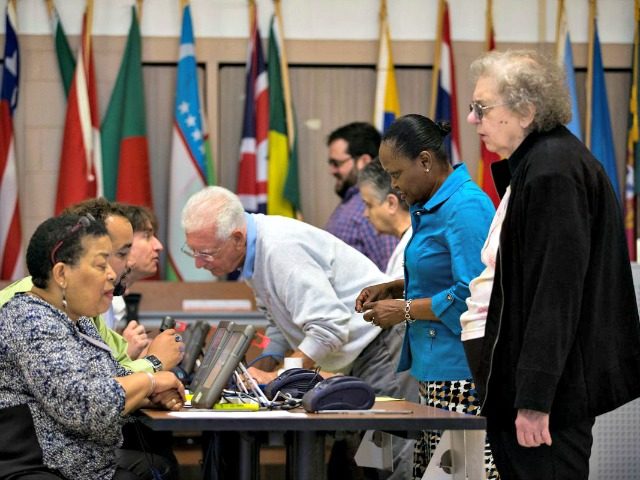Last Friday, a Wisconsin Judge ordered that approximately 200,000 voters be removed from the state’s voter rolls. The ruling caused Democrats to scream that a “purge” of voters was underway.
Democrat Governor Tony Evers tweeted: “This move pushed by Republicans to remove 200,000 Wisconsinites from the voter rolls is just another attempt at overriding the will of the people and stifling the democratic process.” Ben Wikler, the Wisconsin Democratic Party chairman, said the lawsuit was part of “a right-wing legal and political strategy to prevent eligible voters from voting.”
Wisconsin went for Donald Trump by a mere 23,000 votes in the 2016 presidential election. Democrats now claim that the lawsuit, brought by the Wisconsin Institute for Law & Liberty, is a sinister effort to remove enough Democratic voters from the rolls to ensure that the state goes for Trump again.
The problem with the Democrats’ hue and cry is that the judge’s order is exactly what state and federal law requires, and the names being removed from the rolls are simply people who have moved out of Wisconsin.
The problem of voters leaving one state and moving to another, without cancelling their registration in the old state, is immense. The Pew Center on the States estimates that approximately 2.75 million voters are registered in more than one state. That’s on top of the estimated 1.8 million deceased individuals on the voter rolls nationally.
Every case in which a person is registered in a state where he no longer lives is an opportunity for voter fraud. Someone else can falsely vote in his name in the old state; or, as is more likely, he can vote in both states. Indeed, as President Trump’s Commission on Election Integrity found, before it was shut down by a dozen lawsuits, a 2017 study looking at just 21 states revealed that approximately 8,400 people had double-voted in the 2016 election.
When I was Kansas Secretary of State, my office prosecuted about a dozen such cases in just a few years. Unfortunately, most states and counties rarely bother to investigate double voting cases.
Regardless, federal law requires states to correct such inaccuracies in the voter rolls. The National Voter Registration Act, at 52 U.S.C. § 50207, compels states to “conduct a general program that makes a reasonable effort to remove the names of ineligible voters from the official lists of eligible voters.” Election officials are supposed to send notices to people who appear to have moved away. Those names may be removed from the voter rolls if they confirm that they have moved away, or if they fail to respond to the notice after a specified period of time.
Wisconsin law requires that election officials not delay once this process has run. Wisconsin Statute § 6.50(3) states that the election official shall remove the name from the list of eligible voters within 30 days. That is the statute that the judge applied on Friday, after some 234,000 people had been mailed notices in October.
It’s not a sinister Republican plot to remove Democrats from the rolls. It’s the routine and timely maintenance of the voter rolls, without any regard to party affiliation.
One more thing—Wisconsin is a state that allows same-day voter registration. So even if a person still residing in Wisconsin were to be removed from the rolls, he could show up at the polls on election day, re-register, and vote. In short, the claim that this cleaning of the voter rolls will stop anyone from voting is nonsense.
But if the Wisconsin law were to be disobeyed, as Democratic leaders in the state appear to desire, hundreds of thousands of invalid names would remain on the rolls—and that means hundreds of thousands of opportunities for fraud. If the 2020 presidential election comes down to how Wisconsin votes, we will all have an interest in the accuracy of the state’s voter rolls.
Kris W. Kobach served as the Secretary of State of Kansas during 2011-2019. In that capacity, he drafted and implemented Kansas’s Photo-ID and Proof-of-Citizenship election law. An expert in immigration law and policy, he coauthored the Arizona SB-1070 immigration law and represented in federal court the 10 ICE agents who sued to stop Obama’s 2012 DACA executive amnesty. He is currently a candidate for the U.S. Senate. His website is www.kriskobach.com.

COMMENTS
Please let us know if you're having issues with commenting.